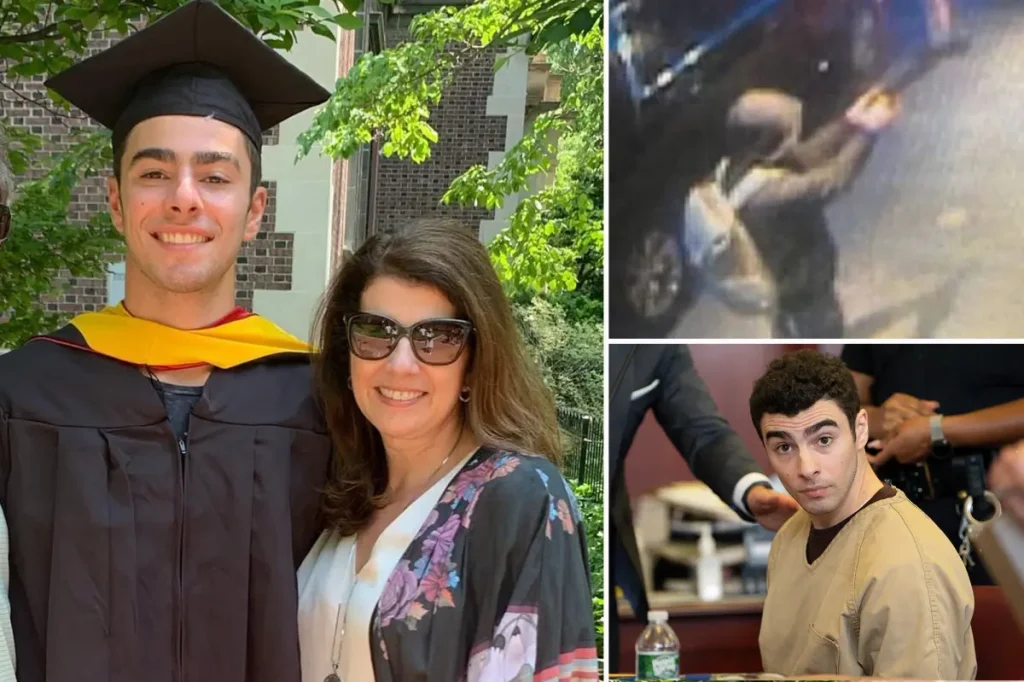Defense Challenges Statements in High-Profile Murder Case
In a significant development in the case against Luigi Mangione, defense attorneys have raised serious concerns about claims made by law enforcement regarding statements allegedly attributed to the suspect’s mother. The defense team has formally accused the Manhattan District Attorney’s Office and the NYPD’s Chief of Detectives of publicizing unsubstantiated claims that Mangione’s mother suggested her son was capable of murdering United Healthcare CEO Brian Thompson. This challenge comes at a critical juncture in one of the most closely watched criminal cases in recent memory, highlighting tensions between public statements by authorities and the evidence actually presented in court.
The controversy stems from a December 2024 news conference where NYPD Chief of Detectives Joseph Kenny made public references to information allegedly received from San Francisco police via the FBI. According to court documents made public Tuesday, Kenny told reporters that Mangione’s mother had suggested to San Francisco police that murdering Thompson “might be something that she could see him doing,” though she reportedly didn’t confirm it was her son in surveillance photographs. This alleged statement gained significant media attention and seemingly helped shape public perception of the case. However, the defense now claims this critical assertion has no evidentiary support in the materials provided to them during the discovery process, raising serious questions about both the accuracy of the statement and the potential prejudicial impact it may have had on the case.
Defense attorney Karen Friedman Agnifilo wrote in her Tuesday filing that “all the discovery provided so far indicates that she did not make such a statement,” directly contradicting the narrative presented by law enforcement. The timing adds another layer of complexity to this situation, as Mangione’s mother had filed a missing persons report for her son on November 18, 2024, shortly before the alleged conversation with San Francisco police took place. The defense team has expressed particular concern about the lasting damage of these claims, noting they continue to be referenced in media coverage and even appeared in a recently published novel about the case, “Luigi: The Making and The Meaning,” released in November 2025. “If it is true that Mrs. Mangione never made this statement,” Agnifilo wrote, “then it is shocking and unconscionable that the District Attorney’s Office and the NYPD have never corrected this highly prejudicial false statement.”
The implications of this dispute extend beyond mere procedural complaints, potentially striking at the heart of due process concerns in a case already drawing extraordinary public interest. Mangione, a 27-year-old Ivy League graduate, stands accused of murdering Thompson outside a hotel hosting United Healthcare’s annual investor conference in Midtown Manhattan. After a five-day manhunt following the shooting, authorities apprehended him in Altoona, Pennsylvania. The case has garnered widespread media coverage not only because of the prominence of the victim—the CEO of one of America’s largest healthcare companies—but also due to the background of the accused and the seemingly targeted nature of the killing. The defense filing asks the judge to declare the Manhattan DA’s office certification of compliance with discovery information regarding Mangione’s mother’s statements as insufficient, effectively challenging prosecutors to either produce evidence supporting the Chief’s claims or acknowledge they don’t exist.
The stakes in this case could hardly be higher for all involved. Mangione has pleaded not guilty to both federal and state charges related to Thompson’s murder. While the state case proceeds in Manhattan, federal prosecutors have already announced they are seeking the death penalty in their parallel prosecution—adding extraordinary weight to any potential evidentiary issues or public statements that might influence the proceedings. The defense’s challenge regarding the mother’s alleged statements represents just one aspect of what will likely be a complex legal battle spanning multiple jurisdictions and involving extensive evidence and witness testimony. Prosecutors are expected to respond to the defense’s claims in future filings, though no immediate comment was available in response to the current allegations.
As Mangione awaits his next court appearance for the federal case on December 5, this dispute highlights the delicate balance between public safety communications and defendants’ rights to fair treatment in high-profile cases. When law enforcement officials make public statements about evidence or witness testimony, those statements can significantly impact public perception and potentially influence jury pools, even if the statements are later found to be unsupported or inaccurate. The defense’s challenge suggests that in this case, a potentially inflammatory claim about a mother believing her son capable of murder was widely publicized without apparent evidentiary support. Whether this dispute will affect the overall trajectory of the case remains to be seen, but it underscores the intense scrutiny that surrounds every aspect of this prosecution and the significant consequences that can follow when statements made in public forums become part of the narrative surrounding a defendant awaiting trial.











